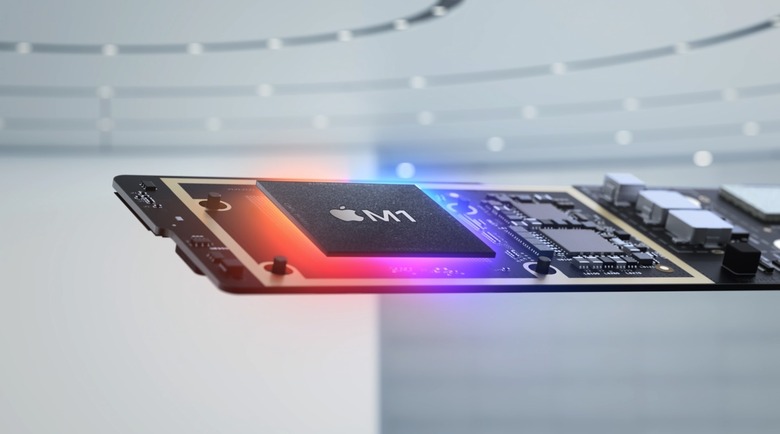Intel Is Terrified Of Apple's M1 MacBooks, And It Shows
- The M1 MacBook Air and MacBook Pro have received praising reviews, with Apple's first chip for computers proving to be a massive success.
- It took Intel several months to respond, but the company is mounting a massive attack against the M1 Mac.
- Using videos to promote the Intel Evo platform over the M1 and carefully chosen benchmarks, Intel practically proves how terrified it is of the Apple Silicon chips and their effects on the industry.
After the iPad and Apple Watch in September and the iPhone 12 in October, Apple had just one more thing to show the world last year. That mid-November event was all about the Mac hardware. More specifically, it was about the massive transition from Intel chips to Apple's own silicon for Mac, a move that Apple confirmed well before the event. Rumors said several years ago that the first MacBook laptop with an ARM chip inside would come in 2020 at the earliest, and Apple delivered. The same M1 chip powers the MacBook Air, MacBook Pro, and Mac mini. Eventually, all Macs will move over to M-series chips. Apple is hardly the first company to make the switch from Intel to ARM, but the M1 Macs just turned out to be massive upgrades. They were very well received by early reviewers, proving that Apple's performance and battery life claims were right. Apple's ARM computers are so good that they deliver a better Windows 10 experience than Microsoft's own Surface laptop packing an ARM chip.
Intel is terrified about what's happening, as the company mounted an entire marketing campaign against the M1 Macs.
It took Intel nearly three months to mount an attack against the M1, and the fact that it's doing it shows how significant a threat the M1 really is. Apple is just getting started, and the M1 is the first-gen chip that Apple built for laptops. The company will develop even more powerful versions of the M1 that will equip this year's MacBooks. And M versions will be good enough to power the iMac and Mac Pro. These are chips built on the latest technology available. They're 5nm chips similar to the A14 chips in iPhone and iPad. And Intel can only dream about getting to the same place with its own processors.
Only a PC can power scientists and gamers alike. #GoPC
— Intel (@intel) February 10, 2021
Having Apple's ARM chips for Macs out also emboldens its competitors, including Qualcomm and Samsung, to create similar offerings for Windows laptops. Microsoft has already shown interest in Windows-on-ARM, so the software will see improvements. That's a future Intel has no place in, assuming it cannot create processors of its own that can compete against the M1 and the other ARM platforms.
Only a PC offers tablet mode, touch screen and stylus capabilities in a single device. #GoPC
— Intel (@intel) February 2, 2021
With all that in mind, it's no wonder Intel has mounted an attack against Apple. You might see Intel ads like the tweets embedded in this post. They seem like a general attack against the Mac, but that's not entirely the case.
The ads point to the same video where known YouTuber Jon Rettinger presents all the advantages of the Intel-based PC over the M1 MacBook. The whole thing plays like a huge Intel advertorial, with Rettinger making some of the same points that PC advocates have been arguing when talking about Mac's disadvantages.
M1 MacBooks do not have enough ports, they're not good for gaming, and they do not have touchscreen displays. But the same goes for Intel Macs if you're going to go there. The only difference between M1 and Intel MacBooks comes from the internal hardware. And yes, the M1 would have some limitations compared to the Intel chips, but Apple has just started the transition. And MacBooks with Apple M chips inside will only get better.
The Intel campaign against the M1 chip is even bigger than that. The chipmaker used cherry-picked benchmark tests to show the 11th Gen Core i7 processor is superior to the M1. But the reality is that Intel isn't even using standard benchmarks to show its chips would outperform the M1 because the results would not go in Intel's favor.
There's no question that Intel Evo is the best alternative to Macs if you're into Windows 10. But Intel's ad also makes it very clear that if you're into MacBooks, then the M1 MacBook Air or Pro is the way to go over anything that has Intel in it.
